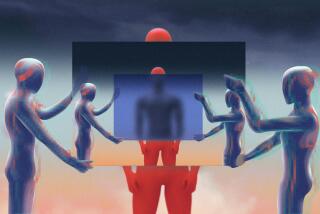‘Computer Rabbi’ Answers Jewish Legal Questions
- Share via
TEL AVIV — When rabbis want to verify an obscure point of Jewish religious law, they now can turn to a computer instead of another rabbi.
The computer rabbi is the brainchild of Bar Ilan University, Israel’s only university dedicated to advancing Jewish religious study and modern science.
The program is called the “Responsa Project”--after the 3,000 large volumes of responsa , or questions and answers on religious matters. The computer version consists of a data base containing 250 volumes--50 million words--of rabbinical statements and judgments on legal questions.
The 50,000 legal questions and answers stored so far are also a treasure of information on Jewish life in Europe and North Africa from the Middle Ages to the 20th Century.
Plan to Store Discs
The project organizers plan to store at least 500 of the 3,000 volumes of responsa on discs.
A scholar can learn almost anything about the development of Jewish community life through the centuries. The system has been used by family and commercial lawyers, historians, economists, musicologists, linguists and sociologists even more than by rabbis.
To test the computer, a reporter asked when smoking first became a legal issue in Jewish history.
The computer responded with a case from the 18th Century in which Rabbi Nissim Mizrahi of Jerusalem responded to a question by a nicotine addict. The addict asked whether he could relieve his suffering on the Sabbath, when smoking is forbidden, by inhaling smoke from the cigarette of a Gentile friend. Mizrahi said he could, but he could not ask the friend to smoke.
“You can find information in 10 minutes that would take months of research with books or a concordance,” said Professor Jacob Klein of the department of Hebrew and Semitic languages at the university, located near Tel Aviv. “I have students who are writing doctoral theses which could not be written without it.”
Klein has just begun learning how to use the computer. First he had to be convinced that it was not a faddish toy.
Ultra-Orthodox rabbis were somewhat skeptical about allowing a computer to have the last word in religious disputations. But the country’s respected former chief rabbi, Ovadiah Yosef, gave it his blessing when seven volumes of his responsa were fed into the computer file.
Computerized Bible
To complete the project’s storehouse of information the organizers have also computerized the Hebrew Bible, the Babylonian Talmud commentaries on the Bible and modern Hebrew novels based on religious themes.
“I think this is unique. Pretty much the whole of our culture is on computer,” said project director Yaacov Choueka.
By facilitating access to hundreds of rabbinical thinkers, the computer has also helped infuse more religion into Israeli life.
Lawyers are the main users of the computer facilities. Under a four-year-old law, Israeli secular courts give priority to Jewish legal precedents where they conflict with British common law, once the basis of the Israeli legal system.
Since then, lawyers have frequently asked the computer to dig up rabbinical opinions to support the cases of their clients, a search that would have taken too long to bother about without the computer.
In a child support case now being heard in Tel Aviv, the judge told the lawyers for both plaintiff and defendant to ask the computer what it had to say about upkeep for children living with their mothers abroad.
Scholars have discovered interesting personalities they would have ignored in ordinary research. Thus the computer has helped to restore several faded reputations, said Rabbi Yitzhak Pechenik, who operates the computer for inexperienced inquirers.
Since many rediscovered rabbis are of Middle Eastern origin, the computer has helped to break down barriers between the two main ethnic divisions in Judaism: the European (Ashkenazi) and Mideastern (Sephardic) traditions.
“Because of a historical accident, the Sephardic heritage was quite forgotten. Now by putting it into the computer scholars have become more aware of its richness,” Choueka said.
To guard against a memory malfunction, there are five back-up systems. A copy of the data base is in a New York bank safe. Another has been installed in Chicago’s Institute for Computers in Jewish Life and access terminals are to be installed in several Jewish institutions in the United States and Europe.
More to Read
Sign up for Essential California
The most important California stories and recommendations in your inbox every morning.
You may occasionally receive promotional content from the Los Angeles Times.













